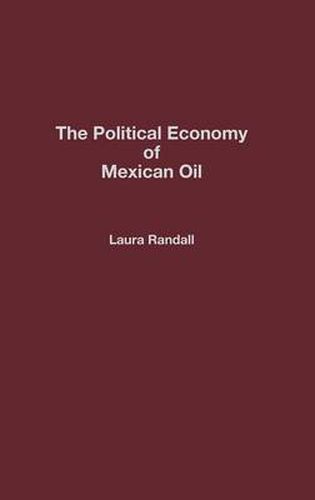Readings Newsletter
Become a Readings Member to make your shopping experience even easier.
Sign in or sign up for free!
You’re not far away from qualifying for FREE standard shipping within Australia
You’ve qualified for FREE standard shipping within Australia
The cart is loading…






This work investigates the general workings of the Mexican oil industry in relationship to the economics and politics of Mexico. The author examines Mexico’s state-run oil concern, PEMEX, and the costs and benefits of Mexican oil policy - for the nation as a whole and for special groups. Using in-depth interviews and extensive data from PEMEX and other sources, Randall explores issues such as PEMEXS’s relationships with workers and the oil union, with suppliers of capital goods and services, with the regions in which oil is produced and with specific groups of oil consumers. Given the critical and negative publicity PEMEX has received over its lifetime, Randall also seeks to answer questions regarding the extent of corruption, overstaffing, and lax management within PEMEX, which she finds to be less than is often alleged. Students of energy and development economics will find Randall’s study an important contribution to the literature of Latin American economic policy.
$9.00 standard shipping within Australia
FREE standard shipping within Australia for orders over $100.00
Express & International shipping calculated at checkout
This work investigates the general workings of the Mexican oil industry in relationship to the economics and politics of Mexico. The author examines Mexico’s state-run oil concern, PEMEX, and the costs and benefits of Mexican oil policy - for the nation as a whole and for special groups. Using in-depth interviews and extensive data from PEMEX and other sources, Randall explores issues such as PEMEXS’s relationships with workers and the oil union, with suppliers of capital goods and services, with the regions in which oil is produced and with specific groups of oil consumers. Given the critical and negative publicity PEMEX has received over its lifetime, Randall also seeks to answer questions regarding the extent of corruption, overstaffing, and lax management within PEMEX, which she finds to be less than is often alleged. Students of energy and development economics will find Randall’s study an important contribution to the literature of Latin American economic policy.